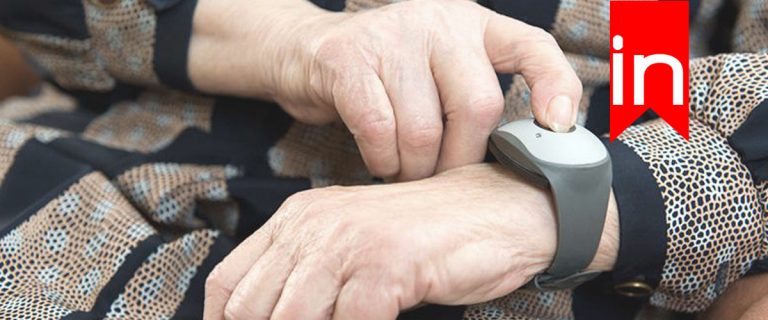Epilepsy is caused by abnormal activity patterns in the brain. Brain inflammation, faulty brain development, or physical injuries to the head can begin this process of changing patterns, causing reoccurring seizures for the person that has these issues. Epilepsy can happen in any age group, but cases are most common in younger children, and people over the age of 65. Considering all of these aspects, family members and doctors needed to find ways to somehow detect if someone was having a seizure or find ways to monitor them. Thanks to this day and age, new monitoring and alert systems have been developed specifically for people with epilepsy, and even some everyday devices that we use all the time could help save someone’s life, as well.
What Devices Can Be Used To Detect or Monitor Seizures?
There are 3 main devices that are used quite often by people who have epilepsy or by people who have a loved one with epilepsy. These monitoring and alert devices are composed of a variety of special cameras, smartwatches, and mattress alarms.
Cameras
For monitoring a person with seizures, a camera device works well. These special cameras detect infrared heat waves and allow family members or caregivers to watch and monitor the person that they are caring for while they are sleeping or are alone in a certain room. When the camera senses that the person in the room is doing unusual bodily movements, such as shaking from a seizure, the camera will trigger an alarm and alert the family or caregivers.
Smartwatches
The most common types of smartwatches that people use today are usually produced by popular companies such as Fitbit or Apple. Neither of these companies has a special feature for detecting seizures, but both watches do monitor heart rate, and an elevated heart rate is a key symptom when predicting a future seizure or if a seizure is occurring at that very moment. For example, if someone had a seizure recently and was brought to the hospital, doctors can use the information on a Fitbit or Apple watch to see exactly how long ago a seizure started so they know exactly what type of emergency care to give to a patient because it varies depending on how recent or not-so-recent a seizure occurred. Other than these well-known companies that people all know, there still are some special smartwatches that were developed for people with epilepsy. These watches that are developed by other companies are programmed to detect unusual, involuntary movements that indicate a seizure. The watch will either sound an alarm or send a message to a loved one with that person’s location. (Usually found by using GPS)
Mattress Alarms
These special alarms would go under a person’s mattress to detect seizures from them if they are sleeping. The device will sense any violent shaking happening on the mattress, and it will trigger an alarm to alert people near them while they sleep. (Not recommended if family members won’t even be in the household while this certain person sleeps).
Medical Alert Systems
You would need to have a medical alert system that has fall detection enabled. When having a seizure, the alert system would pick up all the rapid movements and potential falls and would call out for immediate help. If no response is received, then the operator or family member would call for 911.
Final Thoughts
Overall, there are quite a few monitoring and alert devices that can be used by people with an epilepsy condition, or by their loved ones. As long as these devices can ensure peace of mind for family members and the specific person with epilepsy, hopefully, it will then allow them to live peacefully and as normally as possible.


LifeCall is an American company with a long history of providing excellent monitoring services and efficient emergency alert systems to health care facilities catering to the elderly and individuals for use both indoors and on the go all over the United States.
Call Now
1 (866) 225-1295
Read The Review






